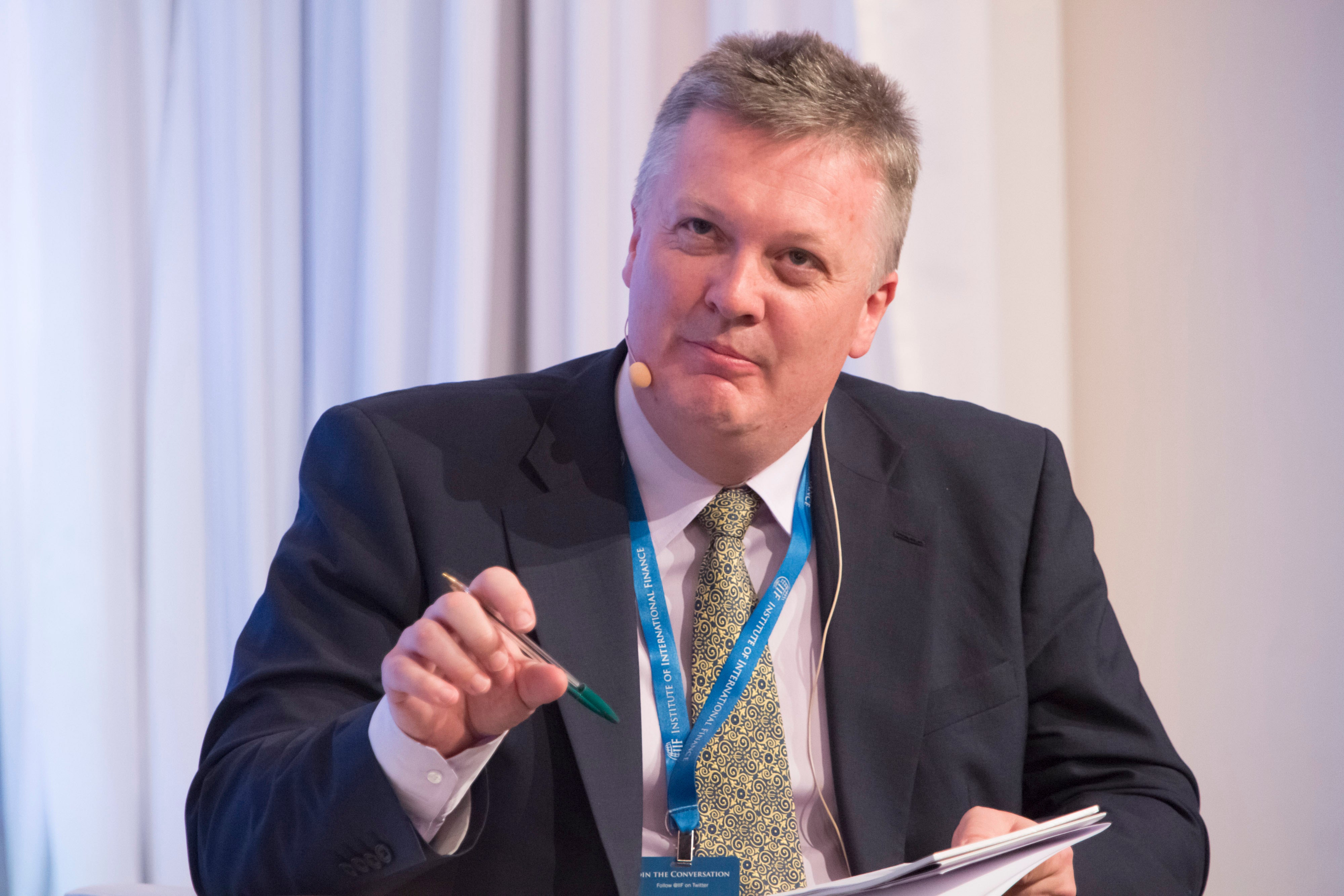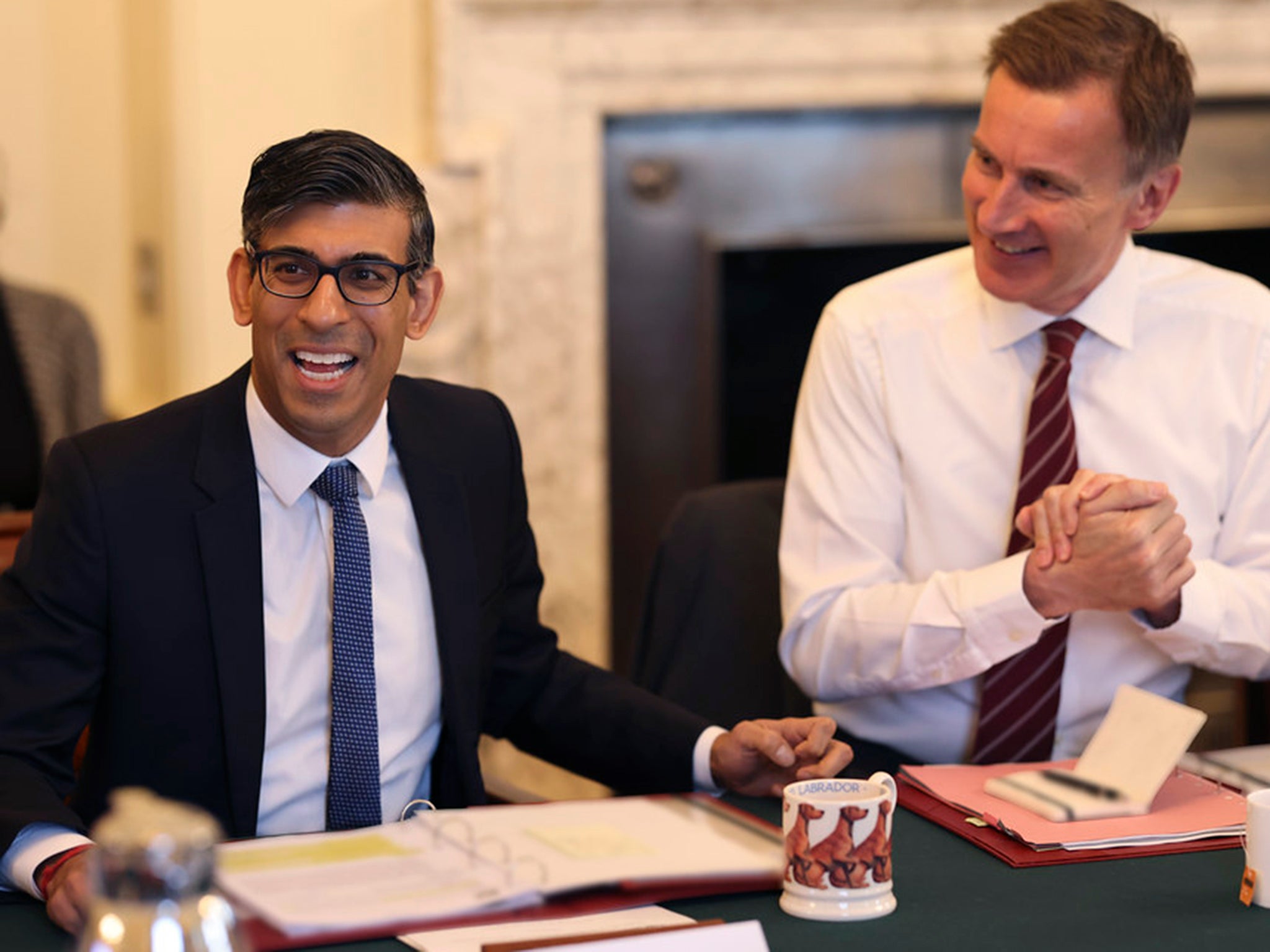Bank of England admits its own forecasts ‘unworkable’ in inflation crisis
Central bank’s model ‘based on last quarter century’, concedes chief economist Huw Pill
Your support helps us to tell the story
From reproductive rights to climate change to Big Tech, The Independent is on the ground when the story is developing. Whether it's investigating the financials of Elon Musk's pro-Trump PAC or producing our latest documentary, 'The A Word', which shines a light on the American women fighting for reproductive rights, we know how important it is to parse out the facts from the messaging.
At such a critical moment in US history, we need reporters on the ground. Your donation allows us to keep sending journalists to speak to both sides of the story.
The Independent is trusted by Americans across the entire political spectrum. And unlike many other quality news outlets, we choose not to lock Americans out of our reporting and analysis with paywalls. We believe quality journalism should be available to everyone, paid for by those who can afford it.
Your support makes all the difference.The Bank of England’s chief economist has admitted that its forecasting model has become “unworkable” during Britain’s current inflation crisis.
Huw Pill conceded that the central bank’s model had produced misleading forecasts which failed to assess the ongoing impacts of the Ukraine war on prices and wages.
Speaking at the European Central Bank (ECB) forum on Wednesday, Mr Pill said the Bank used a model “based on last quarter century” when inflation expectations “were well anchored and there was little evidence of persistence”.
It comes as Mr Bailey defended the decision to hike interest rates to a 15-year high of 5 per cent, claiming the monetary policy committee had to make a “strong move” after studying a surprisingly bad inflation report last week.
The Bank has come in for fierce criticism from Tory MPs, who have accused governor Andrew Bailey and his team of being “asleep at the wheel” as inflation crept up in recent years.
Mr Pill told the forum that the Bank had adjusted to the Russian invasion of Ukraine, but had failed to anticipate “how that shock is going to propagate” with “second-round effects”.
The chief economist explained that the model used by officials downplayed the combined effects of high energy prices continuing to push up prices and wages during a period of labour shortages.
“As inflation moves away from [the] target, the everything-else-equal assumption that allows us to break down the contributions to the drivers of inflation in a linear way tends to become unworkable,” the chief economist said.
“The likelihood of second-round effects is much stronger when there is a tight labour market. The impact of the shocks is not additive to one another but has an important multiplicative moment.”
The Bank announced an external review of its own forecasting after it hiked interest rates to a 15-year high of 5 per cent last week – having repeatedly failed to accurately predict stubbornly-persistent inflation.

Senior Tory MP John Redwood told The Independent that the Bank had got things badly wrong. “I’ve always thought their forecasts were out. I’m glad they’re going to review things because their model needs to be changed.”
He added: “They should be asking themselves difficult questions on why Japan, China and others have 2 per cent or less inflation.”
Ex-Treasury minister Andrea Leadsom told The Independent: “The bank will need to urgently review all its forecasting modelling from previous inflationary periods – the 1970s is a good place to start – and recognise that current presumptions will not be able to deliver sound monetary decisions.”
Senior Tories have continued their war of words with the Bank for failing to tame persistent inflation, with Jacob Rees-Mogg calling Mr Bailey “chief ostrich” with his head in the sand.
Sir Jake Berry – appointed Tory chair by Liz Truss and previously a defender of her failed economic plans – said at the weekend that “maybe it’s time to look for someone else who’s got a better plan”.

However, Rishi Sunak offered personal support for Mr Bailey for the first time on Sunday, praising his “track record” and insisting that there was “no alternative” to the Bank’s approach to bringing down inflation.
Mr Sunak faced calls to trigger a general election if he fails to hit his inflation reduction target at PMQs. He was described in the Commons by Labour MP Chris Bryant as “literally the worst person” to be leading the country through a cost of living crisis because he “created it”.
The PM said chancellor Jeremy Hunt’s meeting with economic regulators on Wednesday would help “ensure fairness of pricing” and pointed out that the IMF has “strongly endorsed” UK plans to reduce inflation.
After his meeting on Tuesday, Mr Hunt said regulators had agreed to act “urgently” to help consumers and he would keep a “watchful eye” on firms’ pricing. But there was precious little detail on how regulators would push companies to bring prices down.
The Treasury said the Competition and Markets Authority (CMA) will bring forward publication of its review on fuel pricing to Monday. It will also give an update on its probe into supermarket pricing earlier in July than previously planned. The CMA also agreed to “further scrutinise” the food supply chain.
Mr Hunt’s department also said the Financial Conduct Authority has agreed to report by the end of July on the savings market to make sure higher interest rates are passed on to savers.
Banks and building societies will be required to “explain the pace and extent of their pass through of interest rates” and how they are “proactively supporting savers” to switch to higher-rate products.
Mr Hunt also said he has met industry leaders to discuss how the best returns for pension savers can be achieved “while driving growth in the economy”.
Meanwhile, Mr Bailey told the ECB forum on Wednesday that higher-than-expected inflation figures of 8.7 per cent had forced the bank to hike interest rates by 0.5 per cent.
“The cumulative data both particularly on the labour market, and on the inflation release, to us showed clear signs of persistence [and] caused us to conclude that we had to make really quite a strong move at that point. It was justified,” he said.





Join our commenting forum
Join thought-provoking conversations, follow other Independent readers and see their replies
Comments